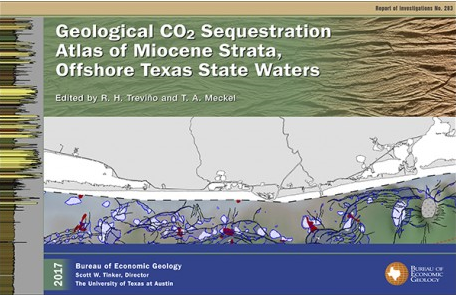News 2020
December 2, 2020: Vanessa Nuñez-Lopez gave a talk titled, "Potential of CO2-EOR for Near-Term Decarbonization," as part of the TOPCORP “Hot Topics” Symposium for oil and gas inspectors. Inspectors from 30 U.S. states and 2 Canadian provinces attended the symposium.
November 9–20, 2020: Katherine Romanak contributed to the International Virtual Course of Carbon Capture, Utilization and Storage for Asia – Oceania Regions hosted by the Institut Teknologi Bandung (ITB) and the IEA Greenhouse Gas R&D Programme (IEAGHG).
November 17, 2020: Susan Hovorka presented at the Carbon Mitigation Virtual Workshop in partnership with the Gulf Coast Carbon Collaborative.
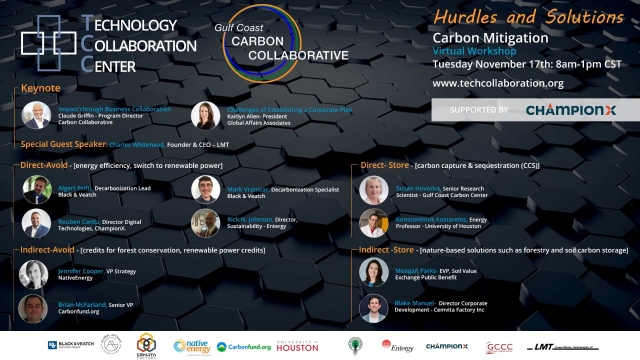
November 12, 2020: Alex Bump gave a talk, “CCS and salt – can we apply salt, and salt-sediment learnings to carbon storage?,” at the Applied Geodynamics Laboratory Industrial Associates Annual Review.
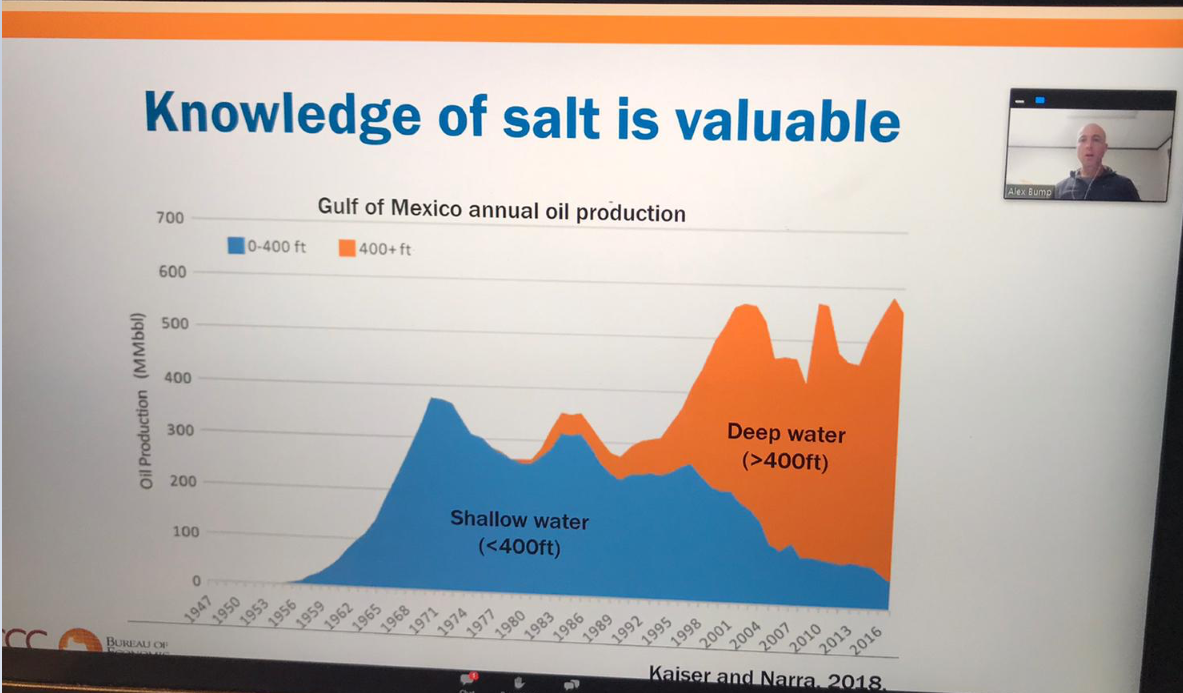
October 28, 2020: Alex Bump gave a talk to the Pipeline Research Council International, a group of pipeline and gas storage operators curious about new opportunities in CCS.
October 27, 2020: GCCC graduate students and undergraduates presented "CO2: Too Much of a Good Thing?" at the Bureau of Economic Geology's Zoomerama. The presentations are targeted to grade school students, replete with lesson plans and demonstrations that you can find at the link above.
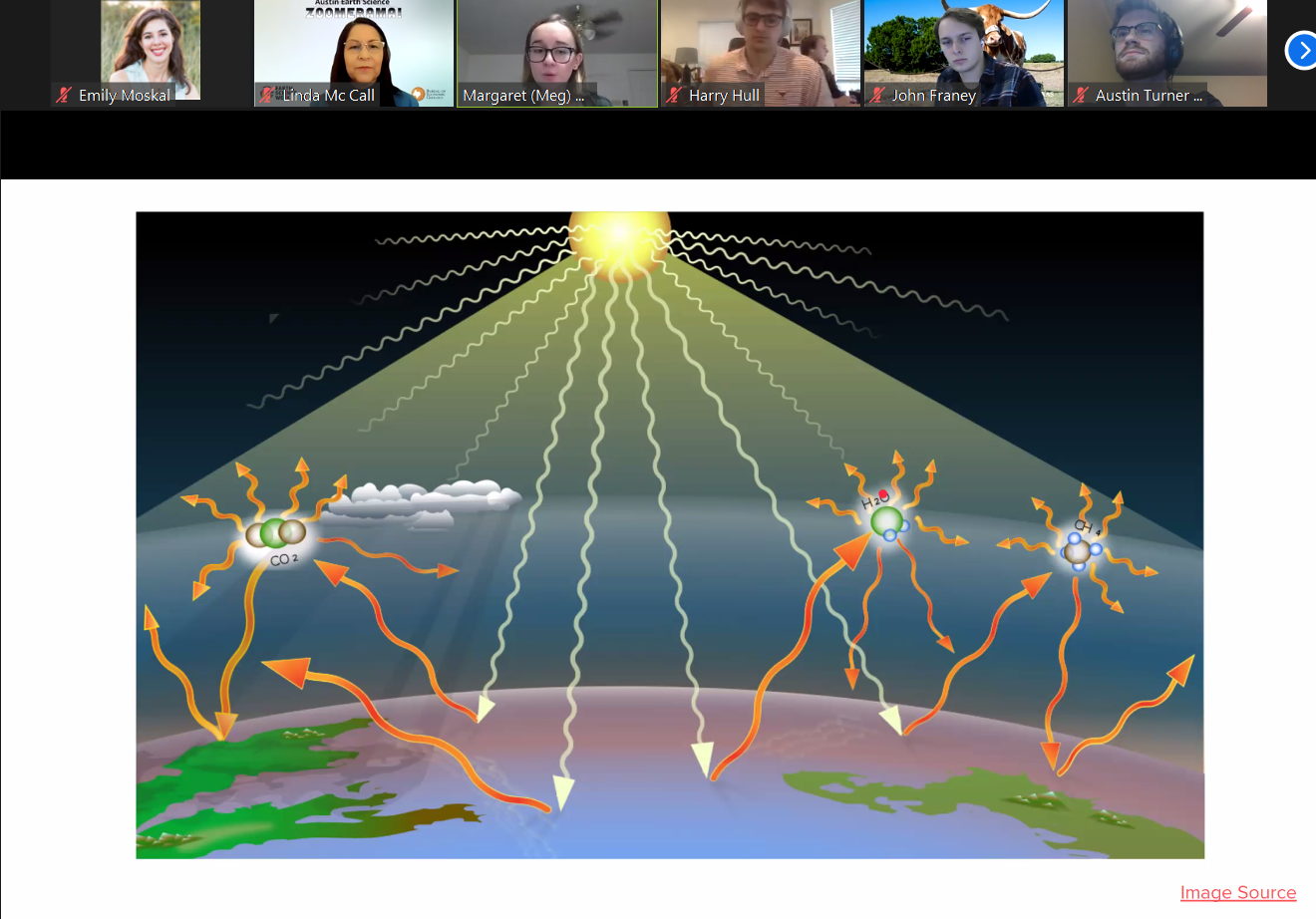
October 22, 2020: Alex Bump gave a guest lecture for Professor Peter Clift’s Petroleum Geology class at Louisiana State University. Sharing insights on CCS with the next generation of petroleum geologists, he talked about the drivers for CCS, the nut and bolts of doing it, it’s application to the Gulf of Mexico and the future outlook for the industry. Students were curious and engaged and (as ever) asked some fundamental questions.
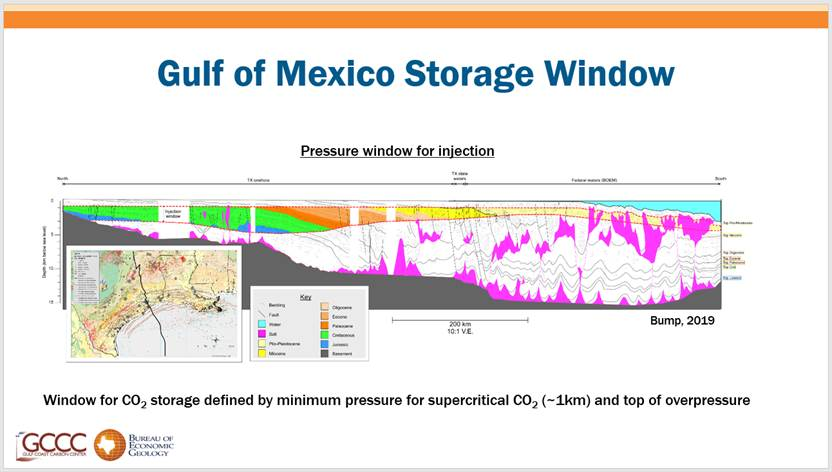
October 14, 2020: Research program coordinator Emily Moskal gave a presentation at the American Shore and Beach Preservation Association's national conference titled, "2020 Vision for Our Coasts: Navigating Stormy Times."
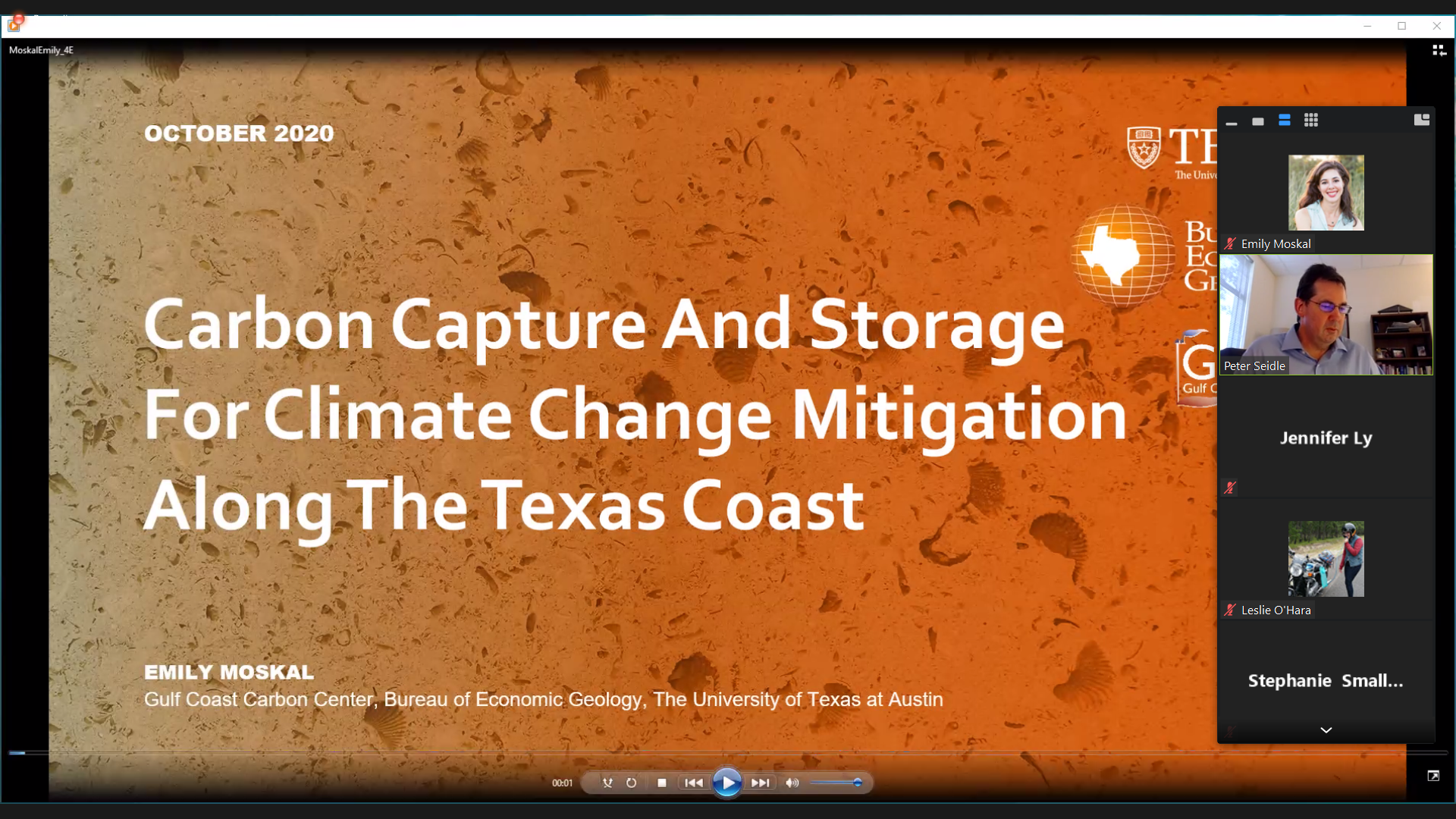
October 13, 2020: Katherine Romanak was a discussant on international perspectives for a webinar on potential conflicts in regulations and technological capabilities of monitoring carbon capture and storage, presented by the Act on Offshore Monitoring. The event ended successfully with 1,122 registrations from 48 countries. You can view a recording of the presentation on the Japan CCS Co., Ltd.--a collaborator of GCCC and owner of the Tomakomai project--website.
October 8, 2020: Research collaborator Curtis Oldenburg gave a keynote lecture regarding GoMCarb work as part of the GeoScience & GeoEnergy webinar series hosted by TU Delft. The recording is available at: https://www.youtube.com/channel/UCoIW2njFBhPNDlNFdF8Z9uA
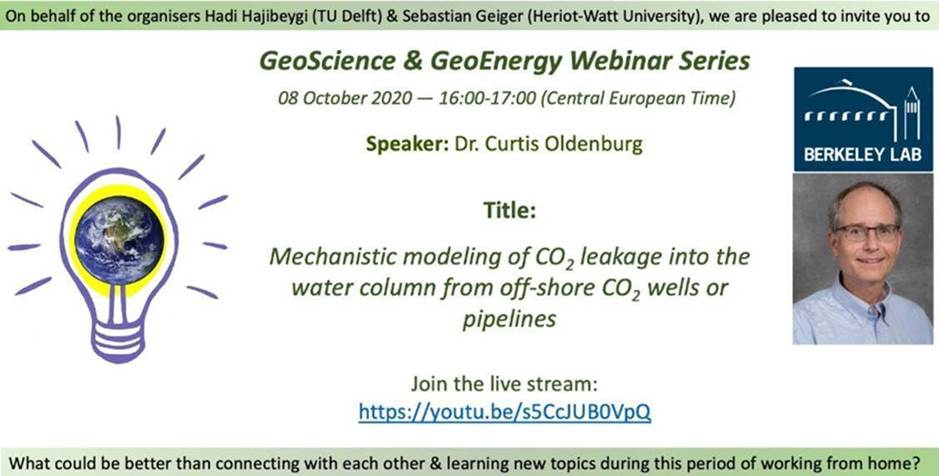
October 6, 2020: Katherine Romanak gave a remote opening statement to collaborators in Tokyo at the Japan-Asia Pacific CCUS Forum regarding the Tomakomai project.
September 28, October 1 and October 6, 2020: Katherine Romanak, Alex Bump, and Seyyed Hosseini were a participant at the NSF Convergence Accelerator on carbon reducing technologies including capture and storage. The event was spread over 3 days. The goal of the workshop was to help guide selection of the next topic for the potential solicitation that would be released this December. The challenge for the workshop would be to make the case that carbon reducing technologies are primed for being a topic whose advancement could be accelerated by getting experts from academics, industry, government, and the community working together in a Convergence Accelerator. More information can be found here.
September 11, 2020: Susan Hovorka gave a talk titled, "Offshore Gulf of Mexico Partnership for Carbon Storage-Resources and Technology Development (GoMCARB) (FE0031558)", during the National Energy Technology Laboratory's Carbon Storage Project Review Meeting.
September 10, 2020: Tip Meckel gave a talk titled, "Field Validation of MVA Technology for Offshore CCS: Novel Ultra-High Resolution 3D Marine Seismic Technology (P-Cable) (FE0028193)", during the National Energy Technology Laboratory's Carbon Storage Project Review Meeting.
September 10, 2020: Katherine Romanak was a panelist in AAPG's Executive Forums and also led a roundtable discussion on monitoring. Roundtable topics were:
- What should we be monitoring?
- How much monitoring is enough?
- Who should bear the cost of monitoring?
- How do we best address uncertainty to the satisfaction of the various stakeholders?
- Is monitoring critical for obtaining social license to operate?
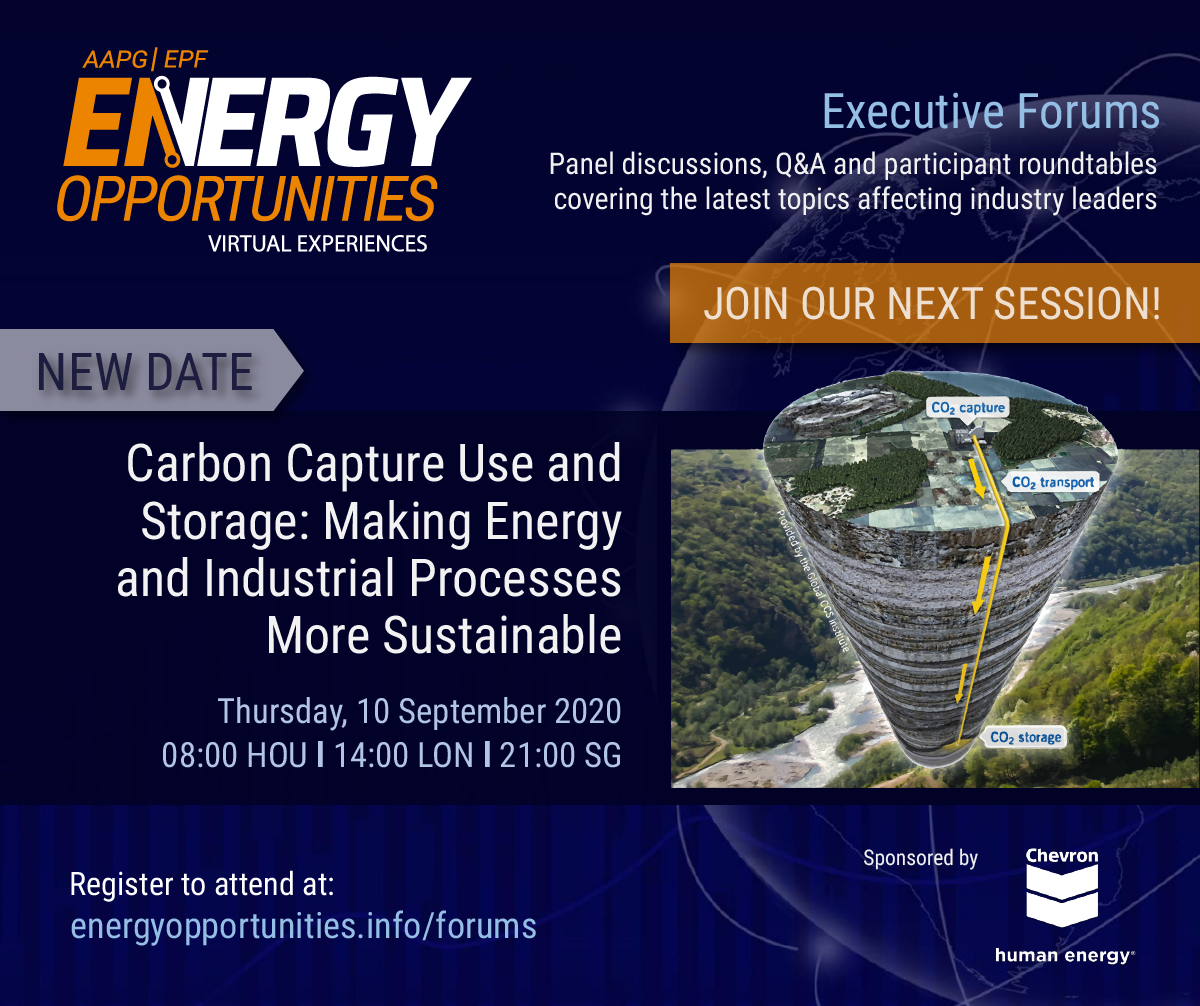
September 2, 2020: GCCC researcher Seyyed Hosseini gave a plenary talk to the Society of Petroleum Engineers' Improved Oil Recovery Conference, Low Carbon Strategies and Future IOR Opportunities. His talk titled, "Synergizing CO2-EOR Operations with Storage to Achieve Carbon Neutrality" can be watched at: https://youtu.be/yejcDVf8ivs You can view coverage of his talk here.
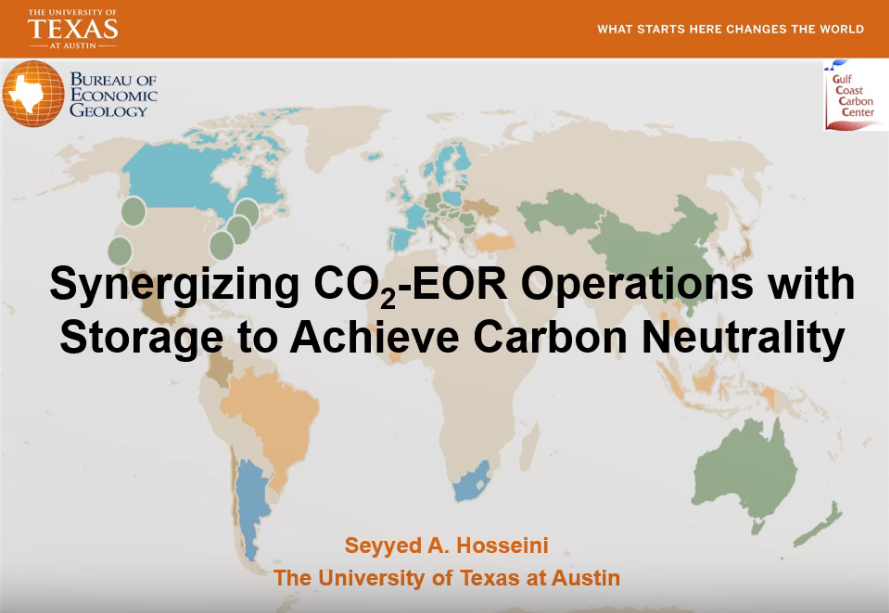
August 12, 2020: Katherine Romanak and Susan Hovorka were a panelist of the IEAGHG Monitoring Network Webinar "Regulation, Industry and Research - Translating Monitoring Research to Meet Commercial Needs." The webinar discussed the translation of CO2 geological storage monitoring research into regulations and commercial-scale projects, targeted to regulators.
August 5, 2020: Susan Hovorka set the stage at the IEAGHG R&D Programme monitoring network with Katherine Romanak as a panelist.
July 28, 2020: Susan Hovorka presented at a webinar titled Direct Air Capture, Sequestration, and Storage, hosted by Climeworks.
July 27, 2020: Susan Hovorka gave a web presentation titled, Developing offshore storage capacity for CCS in the US and globally, to the SynerGEM at the USGS Geology, Energy, and Mineral Science Center.
July 17, 2020: Susan Hovorka works with the new nonprofit Gulf Coast Carbon Collaborative to engage synergies along the Gulf Coast.
July 8-9, 2020: Susan Hovorka served on the Total Scientific Advisory Board.
June 30, 2020: Tip Meckel gave his talk, "Managing Industrial CO2 Emissions with CCUS and 45Q Tax Credits," to the Petrolern At-home Seminar Series (P.A.S.S).
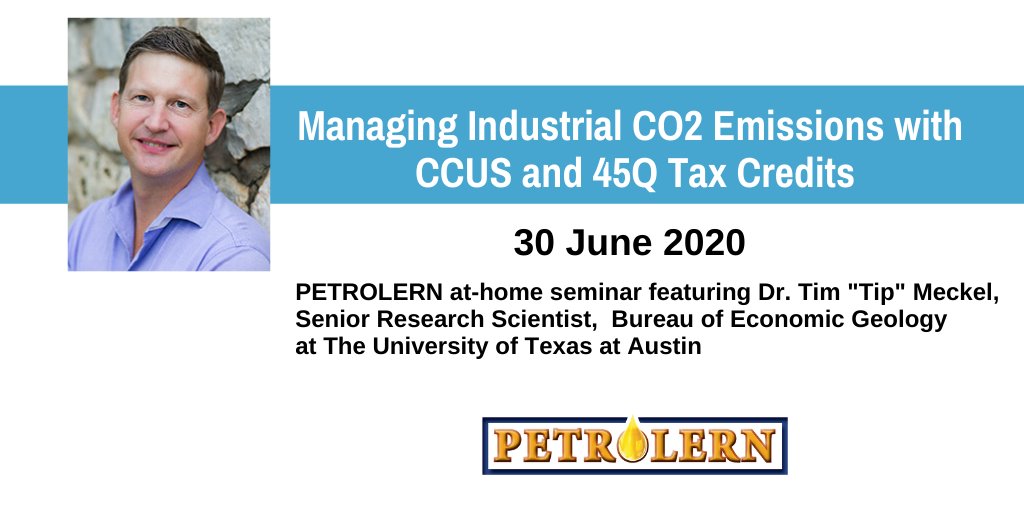
June 5, 2020: Senior research scientist Tip Meckel gave a talk about the rapidly evolving new geologic and engineering business opportunities of CCUS for the AAPG VGP Super Sessions.
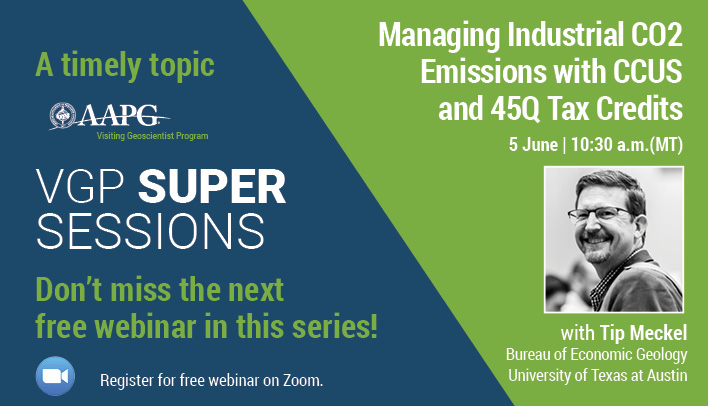
May 26, 2020: The Communicating Science, Health, Environment, and Risk Division accepted a manuscript, Communicating Benefits and Risks about Carbon, Capture and Storage (CCS), for presentation at this summer’s annual AEJMC Conference. The manuscript was a joint effort by GCCC's communications collaborators.
May 20, 2020: GCCC master's student Melianna Ulfah gave an introduction to CCS to the institution where she received her undergraduate degree. The series theme was "How Geophysics Contributes to Society."
GCCC master's student Melianna Ulfah gave an intro to CCS talk.
May 14, 2020: Tip Meckel presented "Managing Industrial CO2 Emissions with CCUS and 45Q Tax Credits" to the Society of Petroleum Engineers.
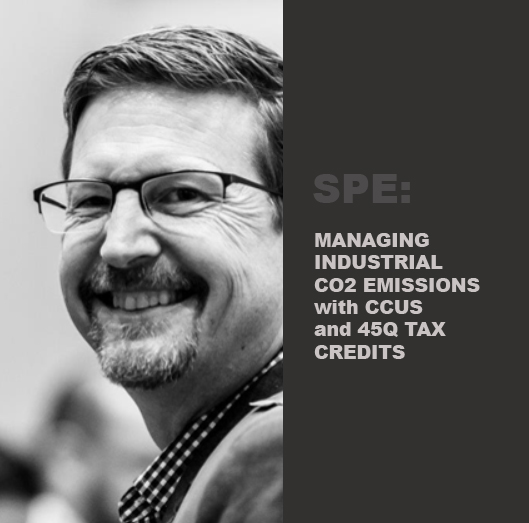
Tip Meckel gave a presentation to the Society of Petroleum Engineers
May 4, 2020: GCCC master's student Harry Hull accepted an offer to spend his first graduate summer in Corpus Christi as an intern at EOG.
April 27, 2020: GCCC master’s student Harry Hull was awarded a $1,000 student research grant from the Society for Sedimentary Geology. The grant will fund Hull’s fieldwork collecting outcrop samples from a depositional environment analogous to the subsurface depositional facies of a GoMCarb offshore area of study. The samples will provide the petrophysical properties needed to simulate fluid flow in the stratigraphic model.
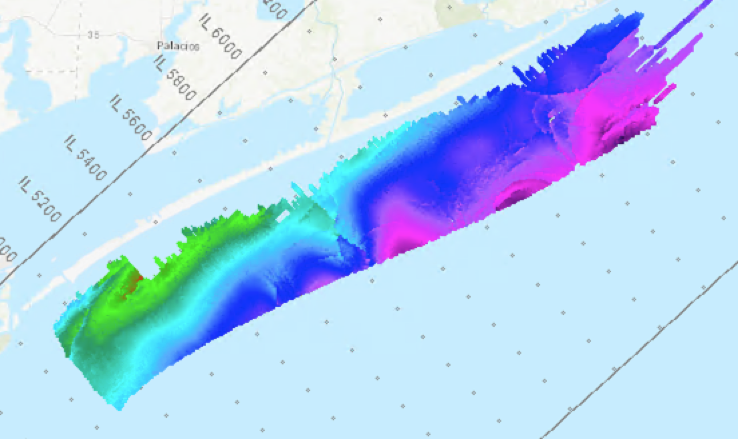
With a grant from the Society for Sedimentary Geology, GCCC master's student Harry Hull will conduct fieldwork that will enable him to add petrophysical properties to a subsurface model of the Texas offshore. Image: Miocene horizon surface
April 27, 2020: Several GHGT-15 conference abstracts submitted by GCCC researchers and students, including Tip Meckel, Alex Bump, Melianna Ulfah, John Franey, and Harry Hull, were accepted.
April 13, 2020: To combat falling oil and gas prices and diversify funding, GCCC researchers came together with collaborators to assemble several strategic proposals to the U.S. House of Representatives Committee on Science, Space, and Technology, responding to a call for input "on ideas to be included in any future near-term response and longer term economic stimulus package(s) developed by the House to address and mitigate the impacts of the current COVID-19 crisis."
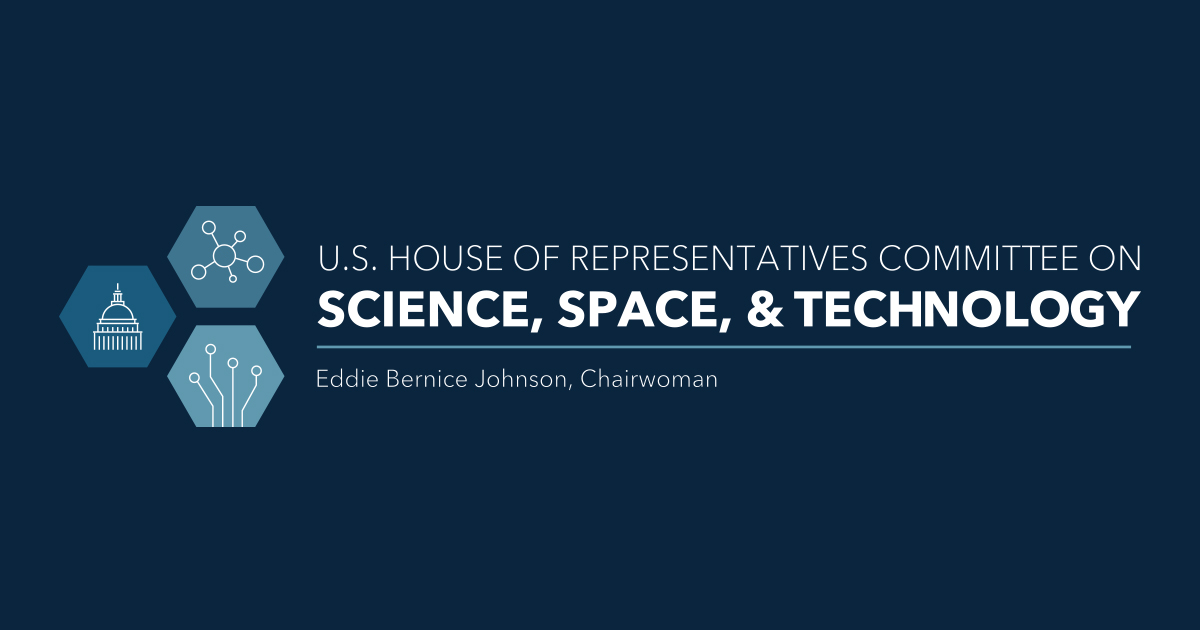
March 26-27, 2020: Participants of the second annual SECARB Offshore & GoMCarb Joint Partnership Meeting can find presentations from the meeting here.
March 16, 2020: Susan Hovorka joins the program committee for the Greenhouse Gas Control Technologies (GHGT) conference.
March 12, 2020: Susan Hovorka participates in an outreach program titled, "Two Scientists into a Bar," sponsored by the museum Thinkery.
March 11, 2020: Sahar Bakshian and Seyyed Hosseini's paper co-authored with Nima Shokri is placed as one of the top 100 physics papers (ranked 16 among 1,072 published articles) in 2019 Nature Scientific Reports. The paper is titled, “Pore-scale characteristics of multiphase flow in heterogeneous porous media using the lattice Boltzmann method" and can be found at: https://doi.org/10.1038/s41598-019-39741-x
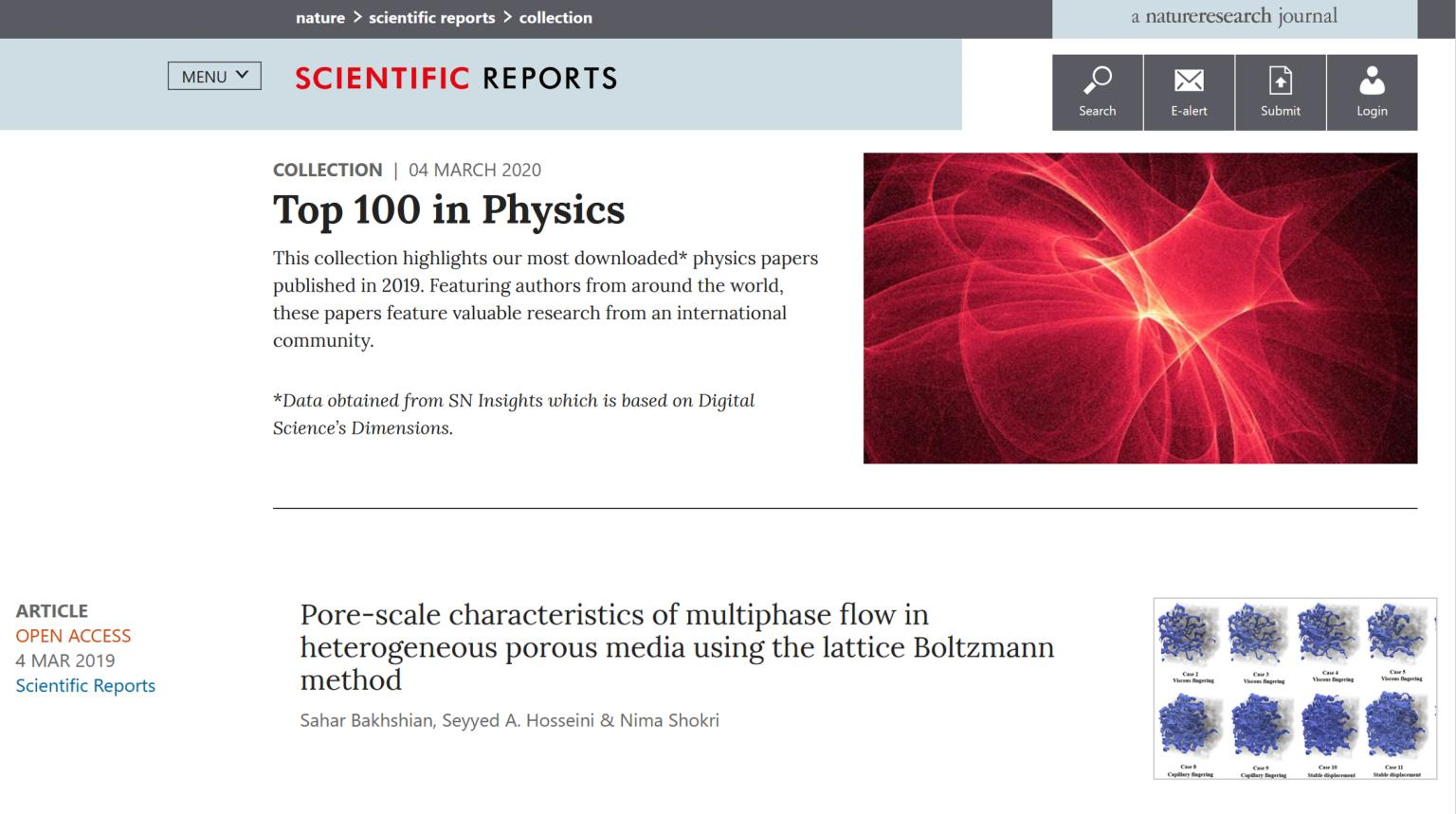
March 7, 2020: Alex Bump and Emily Moskal participated in lively activities at the Geoscience Empowerment Network’s 2nd science communication workshop titled, Communication Science for Impact. The GCCC staff honed their elevator pitches for the lab's work, storytelling techniques, discussed contentious communication topics, and practiced improv to think on their feet in a fast-paced communication environment.
March 2, 2020: A new approach developed at GCCC by Katherine Romanak provides real-time attribution of the source of CO2 found in soils, whether they result from natural or induced environmental changes. New research published in the International Journal of Greenhouse Gas Control finds that currently available sensors are not ideal for this novel approach, requiring decades of historical, baseline data. The paper, titled, "Field Assessment of Sensor Technology for Environmental Monitoring Using a Process-Based Soil Gas Method at Geologic CO2 Storage Sites" recommends the development of Enhanced Raman Gas Sensing (ERGS) for CO2, N2, and O2.
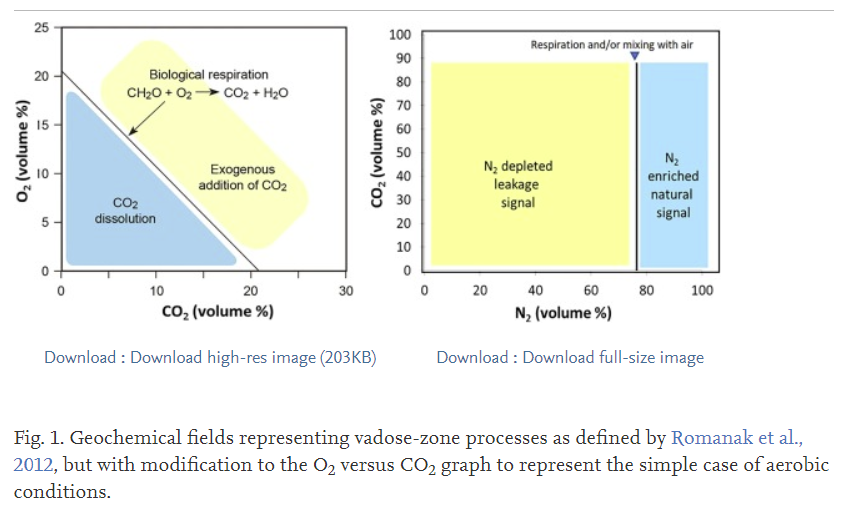
February 28, 2020: Vanessa Nuñez-López and Margaret Murakami led a boy scout troop through carbon capture and storage demonstration activities on the troop's visit to the Bureau of Economic Geology to learn about geoscience careers and earn their geology merit badges.
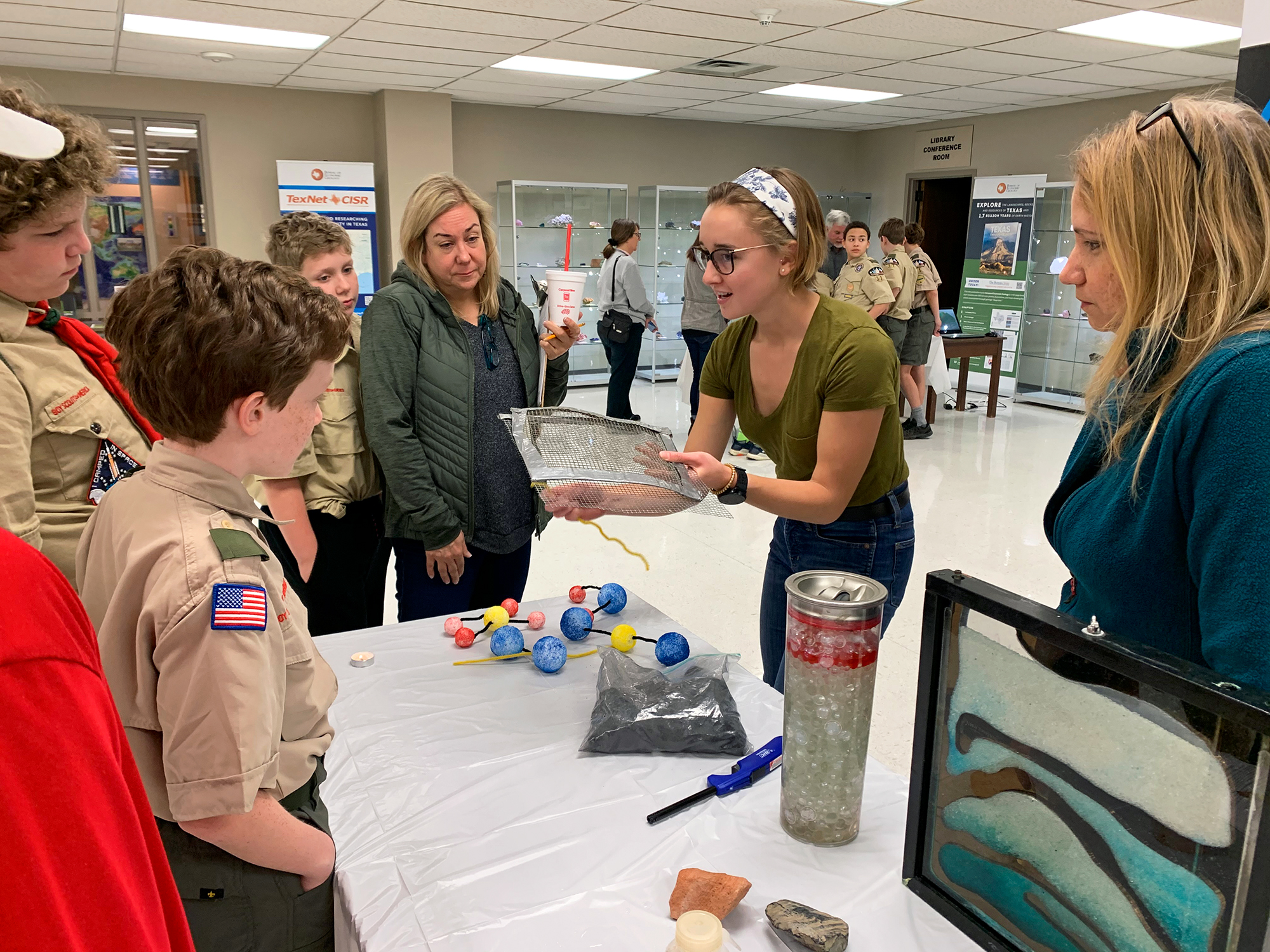
February 25–26, 2020: Tip Meckel traveled to Riyadh, Saudi Arabia to participate in the iCCUS Conference. iCCUS is Saudi Arabia's leading CCUS conference where top decisionmakers access the top experts in the energy field to together shape the future of energy in the region. View a summary of the conference on IEAGHG's blog.
February 18, 2020: GCCC undergraduate researcher Margaret Murakami received Best Undergrad Poster Award at the UT Energy Week for her and GCCC research associate Sahar Bakhshian's research on pore-scale multiphase flow simulation in fractured rocks.
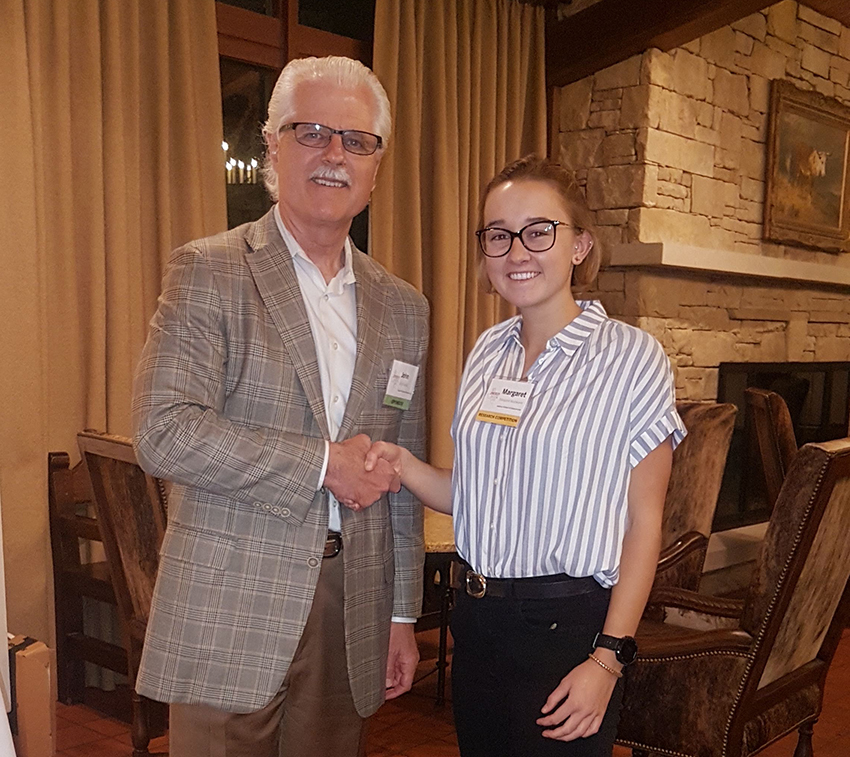
February 18, 2020: GCCC researchers Susan Hovorka and Ramon Gil-Egui present in San Antonio at the Ground Water Protection Council (GWPC) Underground Injection Control Conference focused on carbon capture and storage. Mike Paque, the GWPC executive director said in a news release, "This topic is particularly important and timely as many more states are seeking primacy for the Class VI UIC program and there are growing incentives for and interest in implementing geologic storage." Hovorka presented, "Cost of Selecting a Storage Site — Staged Investment to Decrease Risk" and Gil-Egui
presented "Stacked Storage and Tax Incentive Impacts on CO2-EOR Sustainability".
Susan Hovorka presents at the Ground Water Protection Council (GWPC) Underground Injection Control Conference
February 11-13, 2020: Three GCCC researchers are participating in the STEM-CCS conference, revealing the latest updates in offshore CCS monitoring, as well as co-organized the coinciding 4th International Workshop on Offshore Geologic CO2 Storage.
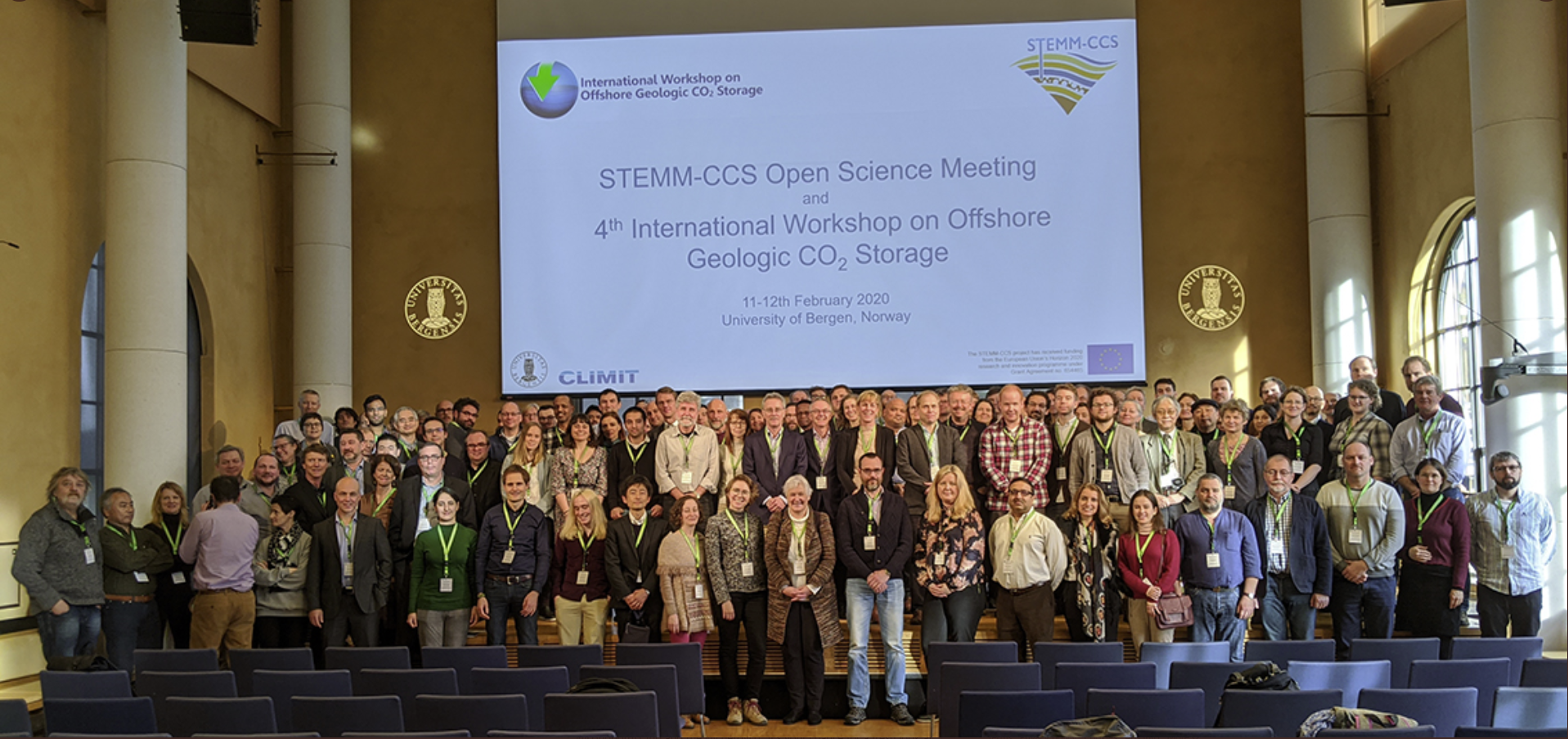
February 12, 2020: Recent PhD grad Prasanna Krishnamurthy and past master's student Emily Beckham are featured for the work they did as an ExxonMobil-supported UT Energy Institute Emerging Technology Fellow. View the feature here.
Here's what they told the EnergyFactor.
Prasanna Krishnamurthy: I trained as a chemical engineer during my undergrad, and right around that time the IPCC report came in, which was the Intergovernmental Panel on Climate Change report, which said that CCS would be essential in order for us to meet any of these climate change goals. And that was definitely a very defining moment for me in terms of deciding what I want to do. After that, I sort of pivoted from what I was doing as a chemical engineer and moved to subsurface engineering, so that I can work on this problem.
Emily Beckham: I was studying how to store carbon dioxide that would have otherwise been emitted into the atmosphere. So, trapping it before it's released and pumping it underground. The best part about being a fellow was working with both my advisors and researchers here at UT, but also getting the input from the researchers at ExxonMobil. Getting their perspective and the business lens behind it was really valuable for me as a student.
February 7, 2020: GCCC was awarded a proposal under UT's Energy Institute's Fueling a Sustainable Energy Transition program. The aim of the project, Assuring Long-Term Storage: Technical-Legal-Policy-Business Models, is to build technical and societal confidence in long-term (100-plus years) storage. The results will be a product of GCCC collaborations with other UT research departments: the Stan Richards School of Advertising & Public Relations, the Cockrell School of Engineering, the Texas School of Law, and the McCombs School of Business.
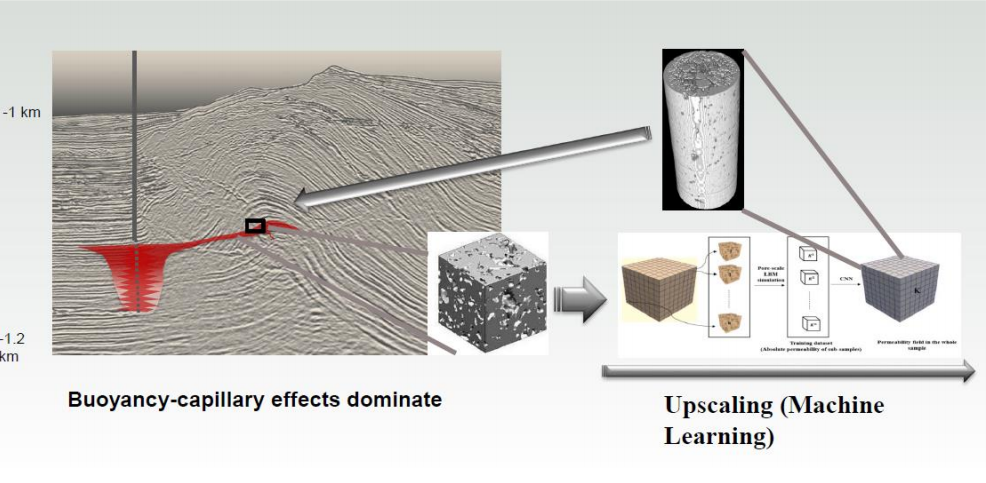
The long-term assurance project will assess CO2 migration over the long-term and at points far from injection, a novel and stark contrast from well-known near-well and short-term (decades) migration studies.
February 11, 2020: Susan Hovorka participated in Ask Energy@UT Experts Anything during the University of Texas at Austin Energy Symposium hosted by the Energy Institute.
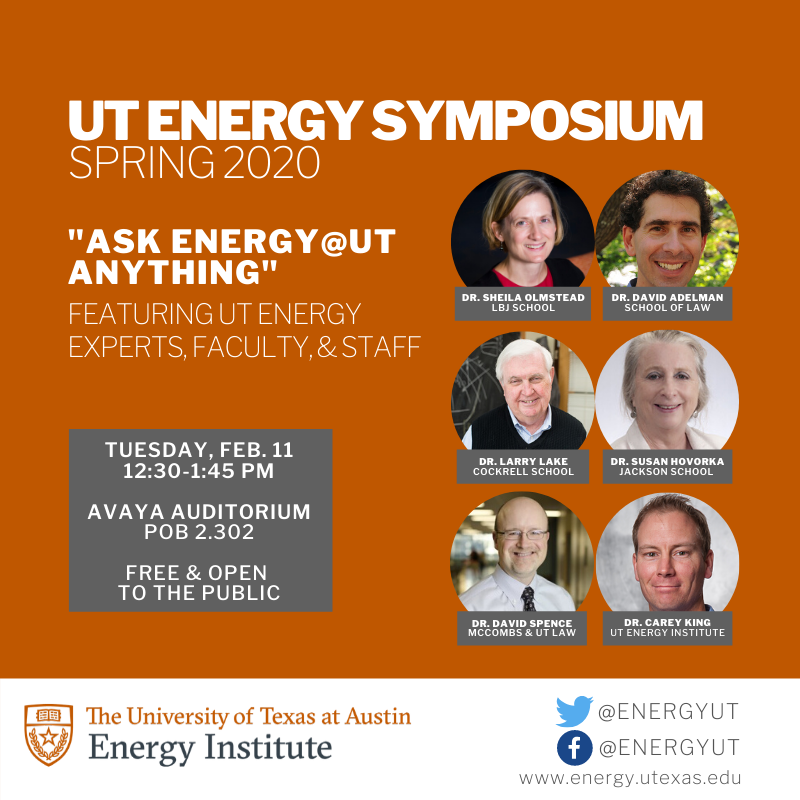
February 6, 2020: GCCC PhD student Prasanna Krishnamurthy successfully defended his PhD dissertation, Geologic Heterogeneity Controls on CO2 Migration and Trapping. Congrats, Dr. Krishnamurthy!
January 28-29, 2020: GCCC co-hosted the 5th University of Texas Conference on Carbon Capture and Storage (UTCCS-5) with the UT Chemical Engineering Department's Texas Carbon Management Program. More than 100 people joined for the two-day technical presentations in conjunction with our biannual sponsor meeting. Read more about the conference on our blog.
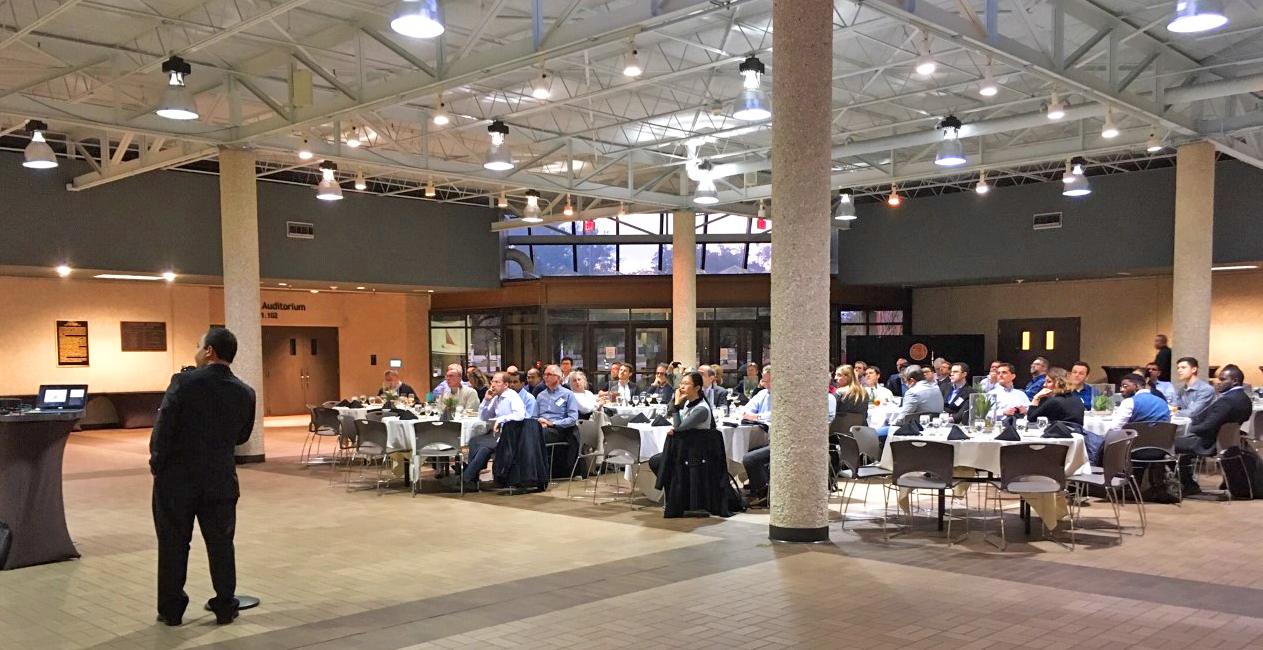
Dr. Varun Rai, director of the UT Energy Institute, gives a dinner talk to the roughly 100 attendees to the UTCCS-5 conference
January 22, 2020: GCCC master's graduate Izaak Ruiz is featured in the monthly GeoFORCE newsletter. Ruiz is now an exploration geologist with Repsol. Here's what he has to say about the GeoFORCE program:
GeoFORCE, what can I say about this program. This program has completely changed my life for the better. Being born and raised in Eagle Pass, TX, I would have never thought I would be where I am today. GeoFORCE introduced me to the world of geosciences and guided me through college as a first generation student. But not only has this program been a big impact on my academic success, the mentors I have met along the way have given me the best advice when choosing a career path in the energy industry. Thank you Repsol for giving me this new opportunity and thank you to everyone that has impacted my life in some shape or form, especially GeoFORCE.
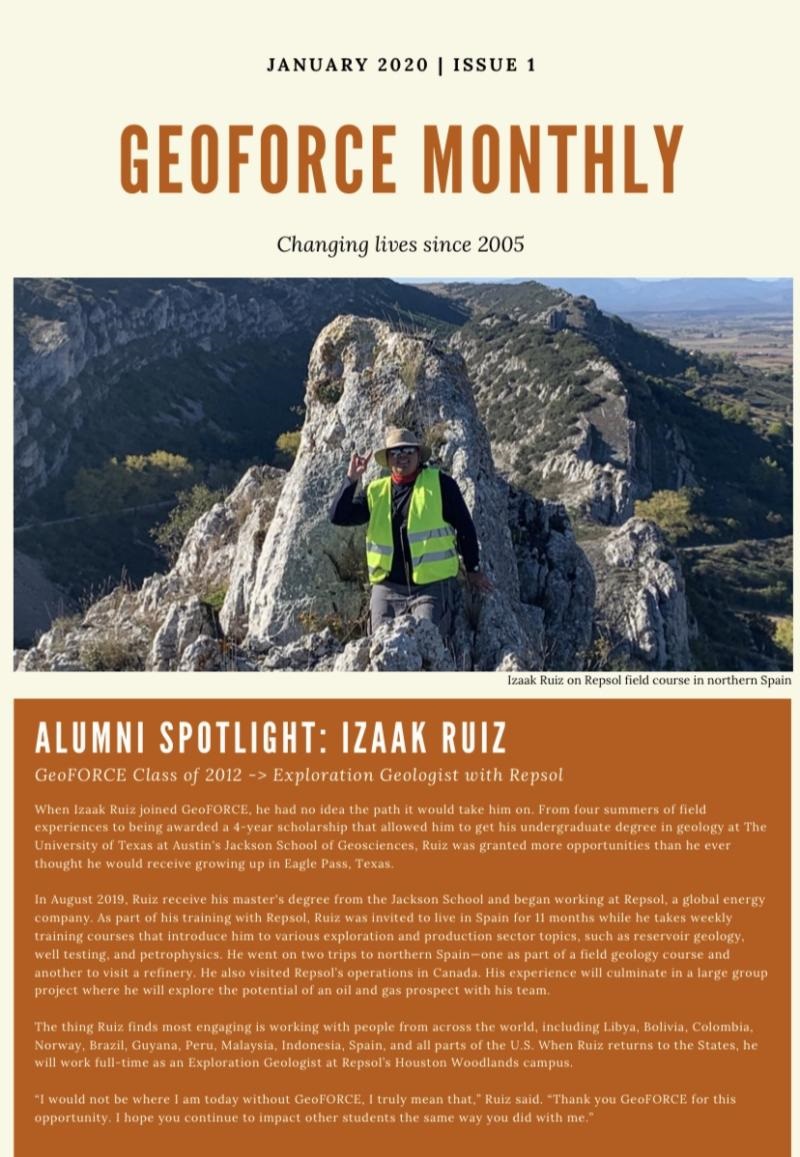
Izaak Ruiz, a past GCCC graduate research assistant, is featured for his graduation of GeoFORCE and subsequent success as an exploration geologist with Repsol.
January 17, 2020: Visiting research scholar Dr. Rob Finley, with decades of academic experience in sedimentology, taught crucial geoscience skills to first-year graduate students, including Melianna Ulfah and John Franey.
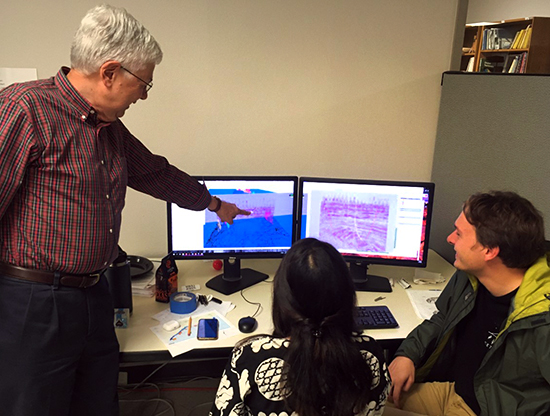
January 16, 2020: Vanessa Nuñez-López published the article, "Exploring the potential of carbon capture and storage-enhanced oil recovery as a mitigation strategy in the Colombian oil industry," in the International Journal of Greenhouse Gas Control. View the article here: doi.org/10.1016/j.ijggc.2019.102938
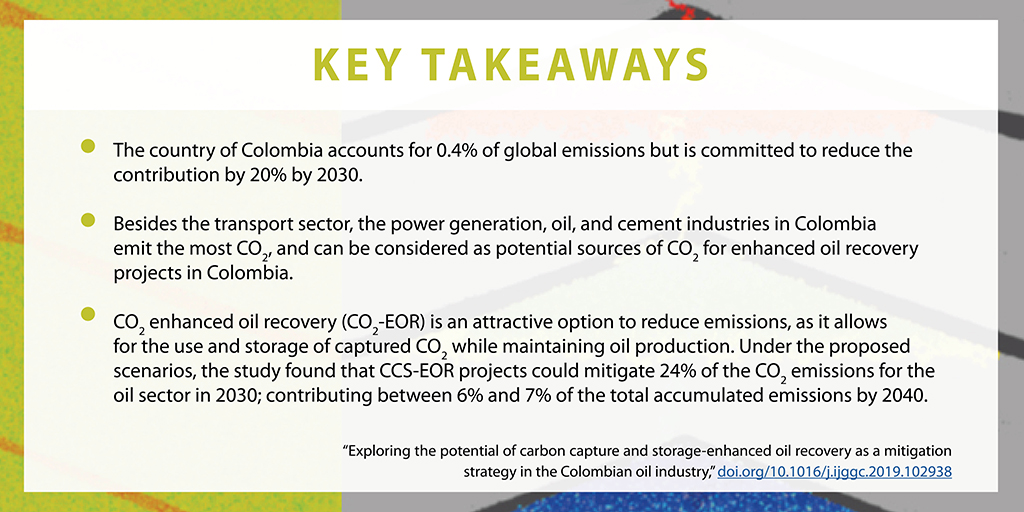
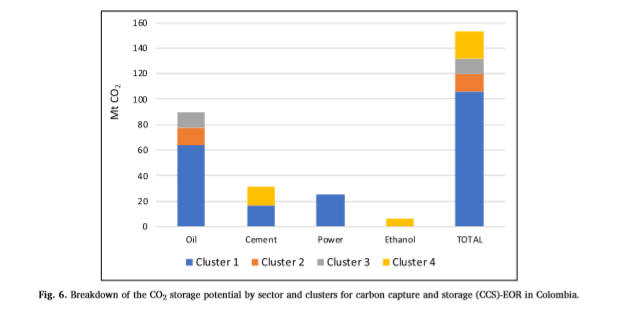
There are four industrial centers, or clusters, of high-intensity emissions. The authors broke down the industrial sector contributions of CO2 for each of the clusters to demonstrate CO2 capture and storage potential.

